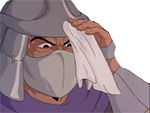By the end of 1997, it was officially announced that
Freelancer was in the early stages of a two-and-a-half-year development schedule.
[36]
Two years later, the project was displayed at GameStock, an annual showcase to the mass media of
Microsoft's games.
[37] The media covered the event, focusing on the features promised for this game. There were concerns about the state of the graphics and uncertainties over the promise of a dynamic economy, but gaming site
GameSpot gave Roberts and his company,
Digital Anvil, the benefit of their doubts.
[38] Initially in 1999, Roberts announced the game would be available on the market by fall 2000.
[34] However, the project suffered delays and by
Electronic Entertainment Expo (E3) 2000, Roberts said the earliest release for the game was at the end of 2001.
[5]
In June 2000, Microsoft started talks to buy Digital Anvil. Roberts admitted that his team required large sums of money, which only a huge company could provide, to continue developing
Freelancer with its "wildly ambitious" features and unpredictable schedule; the project had overshot its original development projection of three years by 18 months. Roberts trusted that Microsoft would not compromise his vision for
Freelancer, and was convinced the software giant would not attempt the takeover if it did not believe
Freelancer could sell at least 500,000 copies when released.
[39] Roberts left the company on completion of the deal, but assumed a creative
consultant role on
Freelancer until its release.
[40] Microsoft instructed Digital Anvil to scale down the ambitions of the project and focus on finishing the game based on what was possible and the team's strengths.
[13][19] Features such as the automated flight control, conversations that had different choices of responses, and sub-quests were abandoned.
[12] Despite the reductions, several reviewers believed the resultant product was still true to Roberts' vision.
[5][13]
The
Freelancer team kept a low profile throughout 2001 before displaying a demo of their latest work at International Games Festival 2002, drawing large crowds. Microsoft announced the project was on schedule,
[41] and Digital Anvil added all the planned content for the game by October 2002. A
beta test with approximately 500 testers was conducted,
[4] and the only main activities left were to refine the game's features and to fix errors uncovered in the testing.
[4] The game shipped to retailers on March 4, 2003.
![Glory to Codexia! [2012] Codex 2012](/forums/smiles/campaign_tags/campaign_slushfund2012.png)
![Have Many Potato [2013] Codex 2013](/forums/smiles/campaign_tags/campaign_potato2013.png)
![The Year of Incline [2014] Codex 2014](/forums/smiles/campaign_tags/campaign_incline2014.png)











































